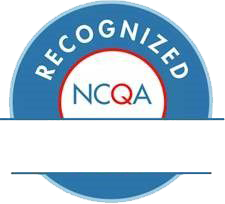Healthy Eating, Healthy Living: Simple Steps for Better Nutrition
By Sidney Coffman, MS, RDN, LDN
March is National Nutrition Month, a time to focus on making informed food choices and developing healthier eating habits. Good nutrition isn’t about strict dieting or depriving yourself—it’s about eating well to feel your best and support long-term health. At Lowell Community Health Center, we work with patients every day to make small, sustainable changes that can have a big impact. Here are some of the most important steps you can take toward better health:
1. Make Half Your Plate Fruits and Vegetables
Fruits and vegetables are packed with vitamins, minerals, fiber, and antioxidants that support your immune system and overall health. They add color, flavor, and texture to meals while helping you feel full. Fresh, frozen, and canned options all count—just look for low-sodium or no-added-sugar varieties.

2. Start Your Day with a Nutritious Breakfast
Eating a healthy breakfast provides the energy your body needs to start the day. Quick and simple options like low-fat plain yogurt with fruit, a hard-boiled egg with whole wheat toast, or oatmeal topped with nuts can help keep you full and focused throughout the morning.
3. Drink More Water
Hydration is key to maintaining good health. Drinking water instead of sugary drinks helps reduce calorie intake and supports digestion, kidney function, and energy levels. If plain water isn’t appealing, try adding slices of lemon, cucumber, or berries for natural flavor. Aim for 64oz a day.

4. Fix Healthy Snacks
Snacking isn’t a bad habit—it’s about making the right choices. Healthy snacks, like raw veggies with hummus, yogurt with fruit, or a handful of nuts, can keep energy levels steady and prevent overeating at mealtime. Choosing whole, nutrient-rich foods instead of processed snacks makes a big difference in overall well-being.
5. Follow Food Safety Guidelines
Preventing foodborne illness is essential, especially for people with weakened immune systems, children, and older adults. Always wash your hands before preparing food, keep raw and cooked foods separate, cook foods to the right temperatures, and refrigerate leftovers promptly. Here is a food temperature guide from the USDA: https://www.fsis.usda.gov/food-safety/safe-food-handling-and-preparation/food-safety-basics/safe-temperature-chart
6. Get Cooking
Cooking meals at home gives you control over ingredients and portion sizes while saving money. Simple skills like chopping vegetables, roasting chicken, or cooking beans from scratch can make home cooking enjoyable and nutritious. Even small steps—like swapping out fried foods for baked options—can lead to long-term health benefits.
7. Consult a Registered Dietitian
If you need guidance on eating well, managing a medical condition, or just want to feel better, working with a registered dietitian nutritionist (RDN) can help. At Lowell Community Health Center, I am available to meet with any patient looking for personalized nutrition advice. Your health journey is unique, and together, we can create a plan that works for you.
Taking control of your nutrition doesn’t have to be overwhelming. Small changes add up, and focusing on these simple habits can improve your health and well-being. If you’d like to learn more, speak with your Lowell Community Health Center Care Team about scheduling a visit with a registered dietitian. Your future self will thank you!
*This information is adapted from the Academy of Nutrition and Dietetics (www.eatright.org).


